"The job interview took place in the garage"
Bank Frick is celebrating its 20th anniversary. Chairman of the Board of Directors Mario Frick and CEO Edi Wögerer look back at two decades of entrepreneurial banking. They explain why a company’s vision cannot simply be tokenism, how they generate added value for financial intermediaries, and why blockchain no longer has to be like the Wild West.
Bank Frick CEO, Edi Wögerer (left), and Chairman of the Board of Directors of Bank Frick, Mario Frick: “We quickly tackle projects without them having to pass through seven hierarchical levels, leaving them watered down beyond recognition.”
Bank Frick: In the industry, Bank Frick is seen as Europe’s leading bank when it comes to blockchain technology, yet you are somewhat displeased when blockchain is all that people associate Bank Frick with. Why is this?
Edi Wögerer: Because we are so much more than just a blockchain bank. We are a successful custodian bank for funds, and our Funds and Issues department supports our clients with bespoke products for raising equity and debt capital. We are extremely strong in the area of payment processing. We are also the only bank in Liechtenstein with so-called acquiring licences from Mastercard and Visa, for both payment service providers and their affiliated shops. We also offer a full range of traditional banking services, which enable our clients to benefit from practical one-stop banking. So you can see why we’re a little displeased with this reputation [laughs].
Bank Frick says itself that it is an intermediary bank. Why do you focus on intermediaries instead of dealing directly with end clients?
Mario Frick: As is the case for all other banks in Liechtenstein, we have been seen as a “private bank” in the past, but in reality, we have always been an intermediary bank. It goes without saying that we have always wanted to attract as many good clients as possible; however, we did not do this via our own advertising or sales channels, but by focusing on cooperation with other financial intermediaries. Thus, the founders of Bank Frick in 1998 included various companies from the financial sector. And so we provided financial services for other financial intermediaries, such as trust companies, insurers or asset managers, which then further refined these services for their clients. A year ago, we sharpened our vision and mission by underlining that our aim is to support financial intermediaries in successfully differentiating themselves from their competitors. This was all brought together into our strategy, which succinctly summarises our vision, mission and guiding principle.
Edi Wögerer: I would like to mention that we were recently visited by some external experts, who studied our strategy paper with great interest. According to them, it is extremely rare for a bank to formulate such a clear mission. We don’t see this as mere tokenism, but as a clear strategic direction. Our strategy permeates the entire Bank, and all our employees – including Mario Frick and myself – have to look at our activities and projects to check whether they contribute towards our strategy. If they don’t, then we will discontinue them.
Why did you go to the trouble of defining a vision and mission for the Bank?
Mario Frick: We are an extremely entrepreneurial bank and tend to quickly tackle projects without them having to pass through seven hierarchical levels, leaving them watered down beyond recognition. This makes us extremely fast. One disadvantage of this, however, is that sometimes we can get up and running too quickly and then only later realise that we are heading in the wrong direction. By having a clear vision in which we position ourselves as a recognised provider of modular digital banking services for intermediaries, we can quickly ascertain whether a business idea is merely opportunistic or whether it is in line with our strategy.
Mario Frick: “As part of our vision, our aim is to support financial intermediaries in successfully differentiating themselves from their competitors in the market.”
Even though Bank Frick is much more than blockchain, we have to return to this topic. After all, you are known in the industry for being the blockchain bank. How did you get this reputation?
Edi Wögerer: This certainly has a lot to do with Bank Frick’s corporate DNA: being prepared to try something new. And in the case of blockchain, being a first mover definitely paid off. We first came into contact with the topics of blockchain and cryptocurrencies around four years ago. We looked at these internally and realised they had great potential. We then went about gathering the necessary expertise, which included flying in a young, extremely talented programmer from California, who made a key difference. A decisive factor here was not to look at the topic in isolation, but to build up the relevant know-how in all the critical departments: in Business Development, Client Support, Trading and – very importantly – Compliance. Something like this does not happen overnight. It is only by applying the highest of standards that we can operate the business sustainably.
How can you promise the highest standards? The world of blockchain is seen as an unregulated Wild West.
Edi Wögerer: Quite simply: by applying the same strict measures prescribed by law to blockchain banking as we do to traditional financial transactions. We fully establish the identity of our clients and the origin of their assets can be traced back a number of steps – in this respect, crypto assets are significantly more transparent than conventional money, even if some people claim the opposite. Companies in the blockchain and FinTech sector benefit from a clear USP when they work with us: more investor security. They can communicate this to their clients. And our intermediaries can be certain that their business model is forward-looking and need not fear regulation.
Our custodian and trading services for crypto assets are an excellent example of how this fits into our mission. With these services, financial intermediaries can very successfully differentiate themselves from their competitors in the market and add value for clients who are interested in crypto assets. In parallel to this, our Funds and Issues department developed the first crypto funds in Europe for fund promoters. We now act as the custodian bank for these funds. Our funds people also launched the first certificate for cryptocurrencies – this was back in summer 2017, long before everybody else was talking about the topic.
Since then, the hype has died down somewhat, with certain people saying that cryptocurrencies are just hot air and that blockchain is completely overrated. What do you say to this?
Mario Frick: We are pleased that the big hype has abated. As regards blockchain, we are still at the very start in developing it to its full potential. Blockchain will be much, much more than just cryptocurrencies. While our Blockchain department was overrun with requests during this busy phase, the majority were infeasible. After having quickly reviewed the documents submitted, our specialists had to reject 80 per cent of requests. Less than 10 per cent of initial contacts actually resulted in a business relationship. We have a lot of clients from Switzerland, amongst them over 200 corporate clients from the Crypto Valley in the canton of Zug. One reason for this, of course, is that Swiss banks are still struggling with the topic of blockchain.
Liechtenstein’s advantage in this regard is also a result of the progressive approach adopted by the Financial Market Authority (FMA) Liechtenstein, which set up a Regulatory Laboratory a long time ago. The specialists from the FMA deals with regulatory and supervisory questions relating to innovative business models in the areas of FinTech and blockchain. The FMA was correct in identifying that this is a topic that will become increasingly important going forward and that it is advantageous to monitor it from an early stage without, however, stifling its flexibility.
In late summer 2018, as one of the first countries in Europe, Liechtenstein published a draft Blockchain Act. Will this now stifle the young business?
Edi Wögerer: No, quite the opposite! We believe that the planned Law on Transaction Systems Based on Trustworthy Technologies (TT) (Blockchain Act; TT Act) is a good, extremely interesting draft, which will provide market participants with clarity and security – even if it has a somewhat cumbersome name. Our teams are already looking at interesting business models that are based on the Blockchain Act. Companies that are based in Liechtenstein, which is an EEA member, can then actively operate throughout Europe.
We believe that this draft law from the Liechtenstein government can be used in other countries as the basis for their own legislation in this area.
Let’s talk about “government”. When Bank Frick was founded in 1998, you, Mr Frick, were the Prime Minister of Liechtenstein. In the parliamentary debate about granting a banking licence, it was pointed out that the Bank should not have been allowed to bear the name Frick as this would “give the impression of being from Liechtenstein”, even though the Bank was mainly under foreign control.
Mario Frick: Here you must understand that banking licences were last granted by parliament at the end of 1998. Since then, the government has been responsible for this. The arguments put forward were largely political in nature; as such, I wasn’t bothered one bit. That was playing to the gallery. At the end of the day, members of parliament from all parties approved the name. From the word go, the Bank was actually strategically managed by my father Kuno. I took over from him as Chairman of the Board of Directors in 2008. The company has always been managed by Liechtensteiners – for a long time mostly by members of the Frick family, even. My brother Jürgen Frick was the CEO, while my other brother Roland Frick acted as CFO. Jürgen, who was murdered in 2014, was succeeded by Edi Wögerer, who has been with us since 2000.
What inspired you to apply for a job with Bank Frick, Mr Wögerer?
Edi Wögerer: At the time I had two offers. As a young man, I could have started as a trader at a large, established bank, or I had the chance to go to Bank Frick, which I ultimately decided to do. The job interview actually took place in a garage, so you could say we are a real garage business! I was interviewed by the then Management Board member Roland Frick. I was attracted by the opportunity to help build up this Bank, which at the time only had eight or nine employees. My job profile was somewhat vague, but in the broadest sense, I was responsible for securities. However, first of all, I needed a desk. The only space free was actually in the basement. Now we find ourselves in a similar situation, albeit at a higher level: just a year ago we only had 80 employees, but now there are 125. So we are again busy trying to find space for all our employees. We are continually in a state of change, so we have to remain flexible. People who already want to know what they’ll be doing in their jobs five years from now probably would not be happy working for us.
Edi Wögerer: “We offer jobs that you won’t find at other banks. We therefore receive lots of extremely interesting applications from top people throughout German-speaking regions.”
Where do you recruit your employees?
Edi Wögerer: We appreciate that Balzers is not exactly the centre of the universe, but we offer jobs that you won’t find at other banks. For this reason, we receive lots of extremely interesting applications from top people throughout German-speaking regions. And what’s more, Zurich – the smallest metropolis in the world – is only an hour’s drive away, with Milan and Munich both only two and a half hours’ drive from here. And the quality of life in Liechtenstein is unique. Anybody who loves hiking or winter sports will love Balzers and our region.
But just so there’s no misunderstanding, we are of course looking for employees who can see a professional future with us of five or more years. For the next 20 years, we would like to continue to be a reliable partner for both our employees and our clients. This means that even though we are moving at a rapid speed, we will still focus on sustainable business models – from a process-based, financial and regulatory perspective.
Mario Frick: As a representative of our main shareholder, the Kuno Frick Family Foundation, this is something I can confirm. Although obviously for me, Balzers is the centre of the universe [laughs]. Of course we – and our minority shareholder Net1 – expect the Bank to generate solid profits. But the main focus is not on maximising profits over the short term. The Bank bears our name and the family takes its social responsibility seriously. If the Bank does well financially, we have the necessary scope to make further investments. That is a simple calculation. This year, we will invest more than three million Swiss francs in a future-oriented IT infrastructure. We have also massively expanded our headcount so that we can better serve our clients and achieve our goals more quickly. After all, with Bank Frick we are aiming to be an even stronger premium provider in the market going forward.
Share post

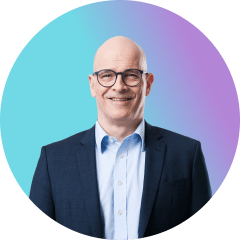
Auch interessant

Vom Code zur Wirkung: Mit Blockchain zu mehr Transparenz und Effizienz
Die Blockchain-Technologie, bekannt geworden durch Laszlo Hanyecz' berühmten Pizzakauf 2010, hat sich weit über digitale Währungen hinaus entwickelt. Mit ihren Eigenschaften – Dezentralisierung, Transparenz und Unveränderbarkeit – ermöglicht sie effiziente und sichere Transaktionen ohne Mittelsmänner. Besonders Smart Contracts haben die Einsatzmöglichkeiten der Blockchain erweitert, etwa in Bereichen wie Lieferketten, Automatisierung und grenzüberschreitende Zahlungen.
Kritiker äußern Bedenken hinsichtlich Energieverbrauch und Komplexität, doch moderne Blockchains sind energieeffizienter geworden und durch benutzerfreundliche Schnittstellen leichter zugänglich. Im Non-Profit-Sektor bietet Blockchain großes Potenzial: Spenden können transparent, kostengünstig und nachvollziehbar vom Spender direkt zum Empfänger übertragen werden, wodurch Effizienz und Wirkungsnachweis deutlich verbessert werden. Die Technologie markiert somit den Beginn einer neuen Ära von Vertrauen und Zusammenarbeit.
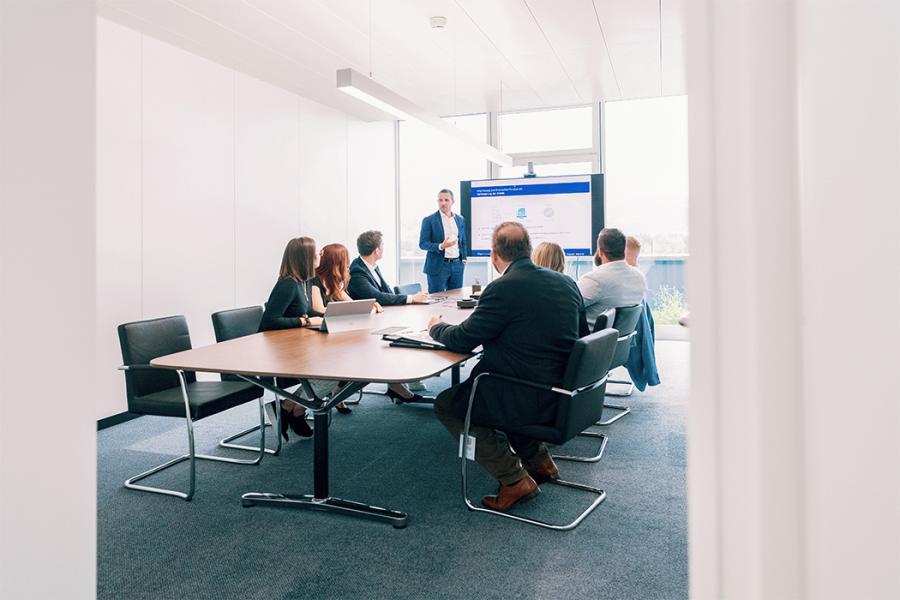
Einblicke in den Prozess der Gestaltung von AMCs
Actively Managed Certificates (AMCs) haben sich zu einem bedeutenden Bestandteil des europäischen Finanzmarktes entwickelt. Als strukturierte Produkte, rechtlich als Schuldverschreibungen klassifiziert, bergen sie für den Investor ein entsprechendes Gegenparteienrisiko, vergleichbar mit anderen strukturierten Finanzprodukten. AMCs werden in Form von Wertpapieren verbrieft, die den jeweiligen Inhaber das Recht auf Geldrückzahlung oder Lieferung eines Basiswertes geben. Durch den Erwerb wird der Investor somit zum Gläubiger des Emittenten und begibt sich in eine Abhängigkeit im Hinblick auf die Art und Höhe der Rückzahlung, die von verschiedenen Parametern abhängig ist.
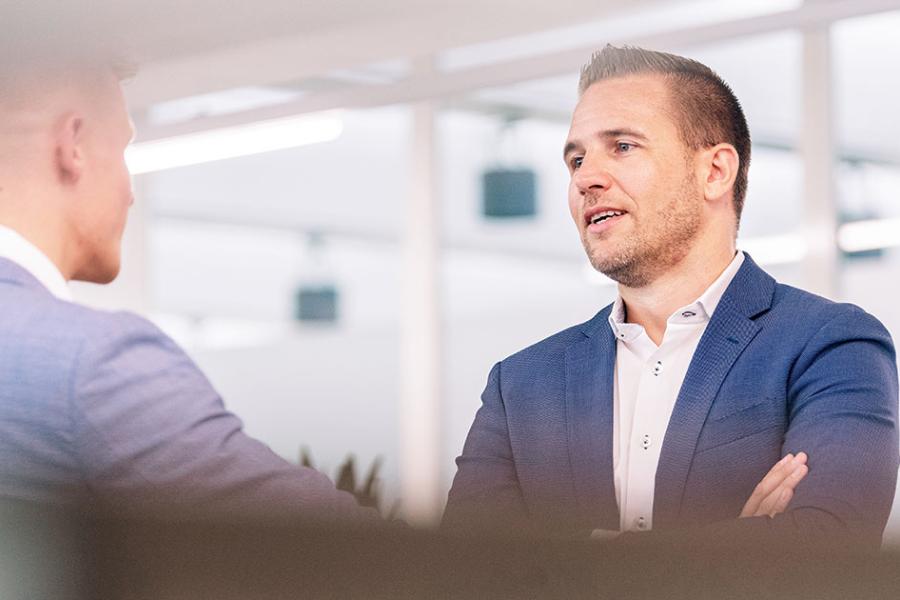
Direct Market Access – Effiziente Handelsabwicklung für Fondsstrategien
Liechtenstein verfügt über eine langjährige Tradition in den Bereichen Banking und Asset-Management. Seit dem EWR-Beitritt im Jahr 1995 hat sich der liechtensteinische Finanzplatz sukzessive als fachkundige Anlaufstelle für Promotoren von kollektiven Anlagestrukturen auf dem europäischen Finanzmarkt etabliert.
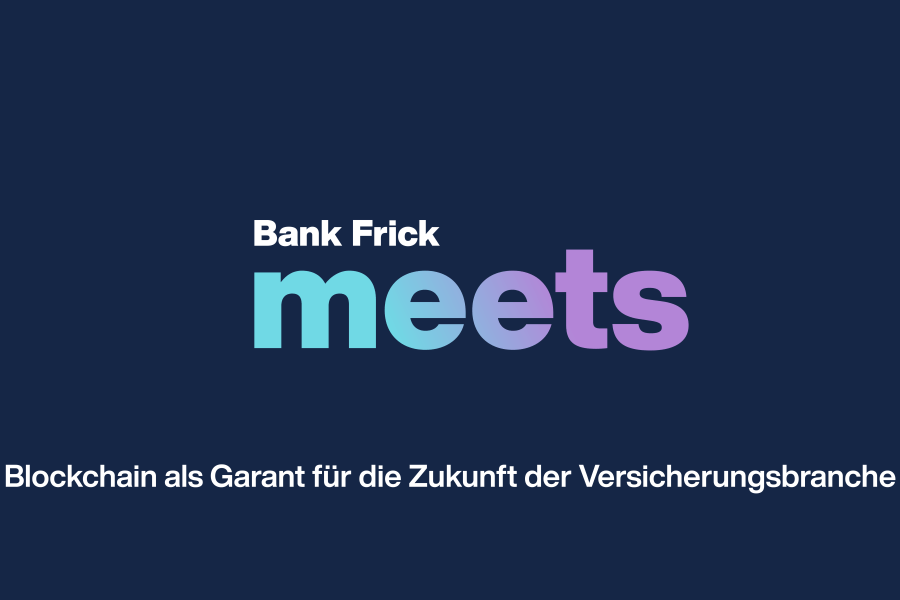
Blockchain als Garant für die Zukunft der Versicherungsbranche
Der Versicherungsmarkt ist ein wesentlicher Bestandteil der Weltwirtschaft und deckt sowohl persönliche als auch geschäftliche Risiken ab. Es ist daher nicht verwunderlich, dass es sich um eine der grössten Branchen der Welt handelt, die einen geschätzten Wert von etwa 5 Billionen US-Dollar aufweist und rund 2,7 Millionen Menschen auf der ganzen Welt beschäftigt. Von den 5 Billionen US-Dollar entfallen rund 3,7 Billionen US-Dollar auf den weltweiten Lebensversicherungsmarkt, während der Wert des Schaden- und Unfallversicherungsmarktes bei 1,3 Billionen US-Dollar liegt.
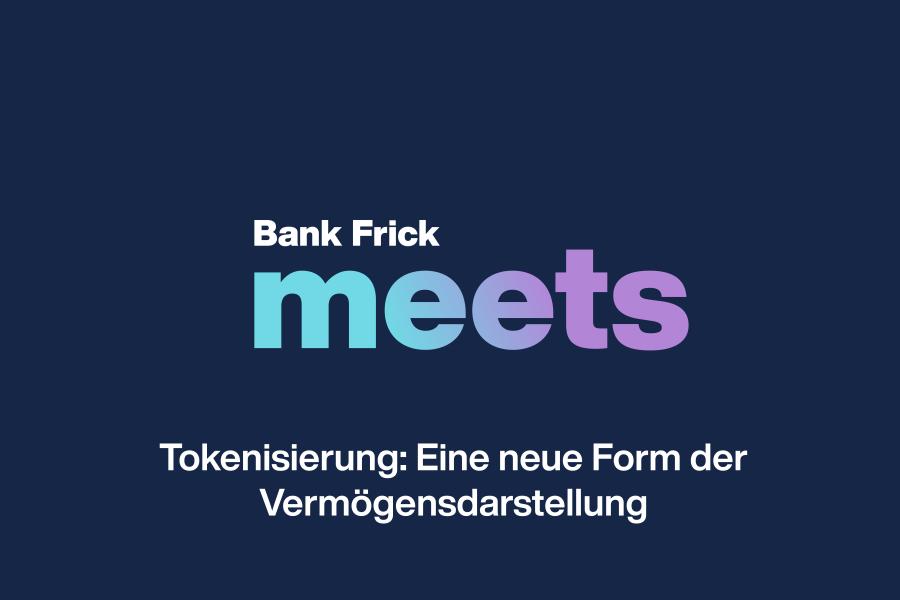
Tokenisierung: Eine neue Form der Vermögensdarstellung
Seit Anbeginn der Zeit haben die Menschen gejagt und gesammelt und sich das, was sie fanden, zu eigen gemacht. Dies ist die Zeit, in der das Konzept der besitzfähigen Vermögenswerte zum ersten Mal auftaucht, wenn auch nur in rudimentärer Form. Seitdem haben sich die Vermögenswerte weiterentwickelt und sind komplexer geworden, weil die Menschen zuverlässigere Wege gefunden haben, Vermögenswerte mit Menschen zu verbinden. Heutzutage schliessen Menschen bei der Übertragung von Vermögenswerten Verträge ab.
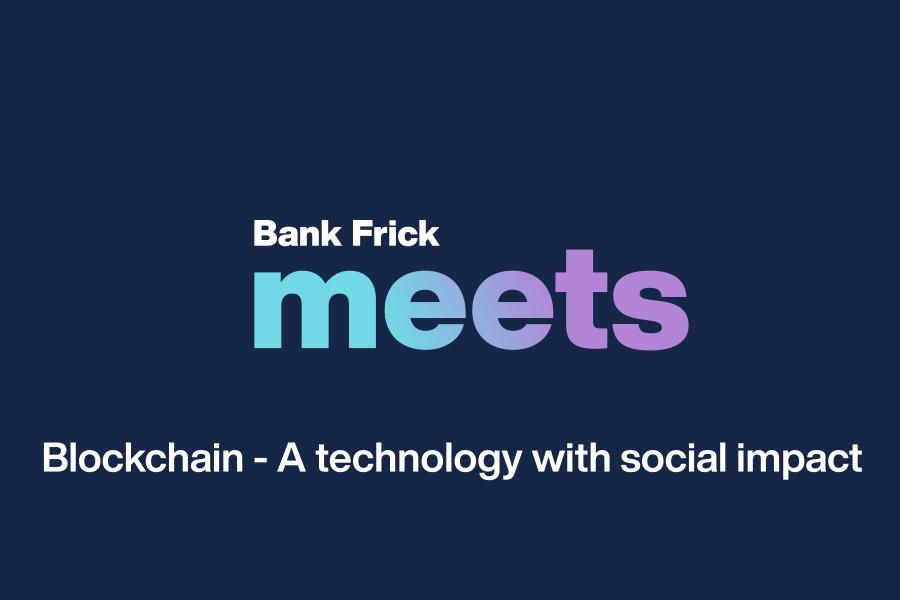
Blockchain: A technology with social impact
Foundational technology is the most effective tool for impacting society at large and solving the challenges it is faced with. One such foundational institutional technology is the blockchain, which entered the picture through the discovery of Bitcoin in 2009 and has since proliferated and emerged in many different forms.
What does blockchain’s social impact look like?
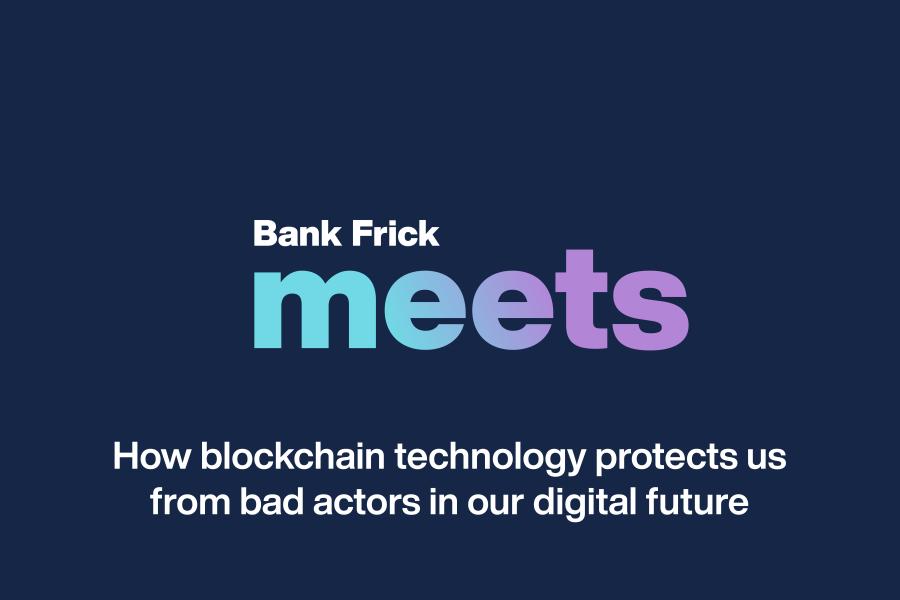
Wie uns Blockchain-Technologie in der digitalen Zukunft vor Angriffen schützt
Die Blockchain-Industrie verzeichnet seit einigen Jahren ein signifikantes Wachstum. Krypto-Start-ups schiessen aus dem Erdboden, und eines nach dem anderen scheint sich als «Einhorn» zu erweisen. In unserer neuen Reihe werden wir diese Technologie in Blogposts und Webinaren genauer unter die Lupe nehmen und erörtern, weshalb sie so erfolgreich ist und überall im Zentrum des Interesses steht. Dabei werden wir uns weniger mit dem spekulativen Aspekt befassen, mit dem die Blockchain häufig in Verbindung gebracht wird, sondern vielmehr untersuchen, inwiefern sie reale Probleme lösen kann.

Wie klassische Finanzintermediäre in der Krypto- und Blockchain-Welt Fuss fassen können
Mit zunehmender Selbstverständlichkeit fragen immer mehr Kunden nach Dienstleistungen rund um Kryptowährungen. Für Finanzintermediäre eröffnet diese Nachfrage neue Geschäftsmöglichkeiten. Um das Potenzial heben zu können, müssen die Akteure aber auch das Spezialwissen zur Verfügung haben.

Blockchain technology reinvents correspondent banking – just not yet
As one of its major use cases, blockchain technology is said to transform traditional correspondent banking. So far major challenges have pushed back this transformation. It is more likely than ever that with central bank digital currencies on the horizon; blockchain disruption will finally come to fruition in the realm of cross-border banking.

Turning crypto investment into an earning asset
With Ethereum upgrading to Proof of Stake, the crypto world is going through one of its most transformative shifts to date. This means that customers will soon be able to earn interest on their digital asset holdings through a process called staking. What staking is, how it will define the future of Ethereum and digital asset custody at large is explained in this article.